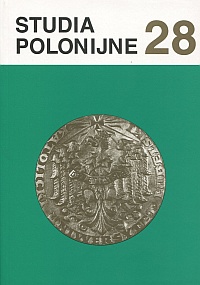Working out the Projects to Introduce the Russian Language into the Liturgy of the Roman-Catholic Church in the North-West Country after the January Rising
Main Article Content
Abstract
The programme to bring the „Russian image” to the territories of North Russia after the January rising, authored by M. Muraviev and his followers, stressed the de-Polonisation of the Catholic Church. Therefore an Audit Committee was established in Vilnius in 1866 for the Roman-Catholic clergy. The Committee sought to prepare projects to liquidate parishes and dioceses, diminish the number of the Catholic clergy, put it under police survey, reorganise theological seminaries and consistories, control sermons and religious instruction, introduce the Russian language into additional devotions in the Catholic Church.
The largest discrepancies in the views of the Committee members were found in the issue of introducing the Russian language into devotions. Some regarded the Russification of the Liturgy as an indispensable means in the work of uniting those territories with Russia. They believed that leaving the Polish language in churches would not only fail to accelerate this process, but would even inhibit it. Now their opponents concentrated on the threats that resulted from the Russian language and, among other things, the fact that the Catholic confession would be more understandable and attractive for the Orthodox believers. After a several-year-long discussion in the Russian press a Committee in Petersburg dealt with it in 1869. As a result, Alexander II cancelled Nicholas I's order, the one that banished the use of the Russian language in the Liturgy of foreign confession in the empire. He graciously allowed all who used as their mother tongue the „Russian of all dialects” to be used in devotions.
The Audit Committee went about to translate pastoral aids. In 1868 a „Triebnik” was printed, and then the Gospels, catechisms, prayer books, and sermons in Russian.
Introducing prayers in Russian was met with a resistance on the part of the clergy and the faithful. Then they turned to the Apostolic See with a question whether they could replace in their devotions the Polish language with the Russian language. The answer from the Apostolic See in 1877 was negative, but it was no obstacle for the ritualists in using the Russian language in the Church, nor did it protect the opponents from persecution or from propagating Russification.

